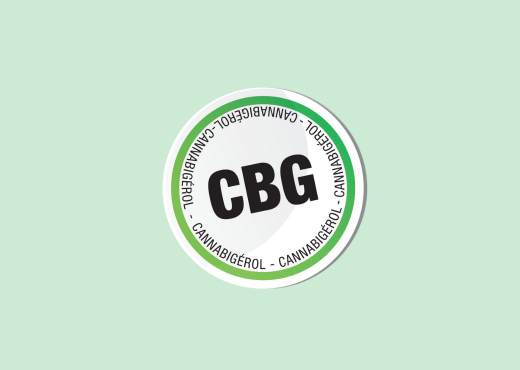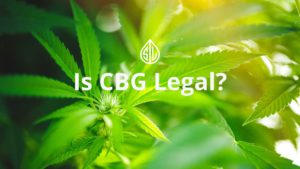
Is CBG Legal? Understanding the Legal Landscape
Cannabis has witnessed an unprecedented surge of interest lately and that has spawned tons of research into all kinds of cannabinoids other than the notoriously famous THC and CBD. One of the most widely recognized of these is Cannabigerol, more commonly (and poetically) known by its nickname CBG. While CBG has been appearing with great enthusiasm in any publication regarding the beneficial health effects of cannabis, there’s one problem: thanks to confusing laws determining if CBG is actually legal may not be as straightforward as you might expect it to be.
What is CBG?
CBG, the non-psychoactive cannabinoid, derived from the
cannabis plant has also recently felt the spotlight. Short for cannabigerol, CBG does not have the ‘high’ effects of THC, and could offer medical applications. Even in the world of cannabis, CBG’s legal status can be as hazy as the effects it has on
the body.
The Federal Stance on CBG
The main factor that determines the legality of CBG is its source. CBG made from hemp – if from cannabis containing less than 0.3 per cent Delta-9 THC – is federally legal in the United States, as a result of the Federal 2018 Farm Bill. The farm bill distinguished hemp from marijuana based on its Delta-9 THC content. It legalized hemp and its derivatives to be grown, produced and sold in the United States and in essence made all hemp-derived CBG federally legal.
But CBG produced from marijuana (aka cannabis with more than 0.3 per cent Delta-9 THC) is federally illegal, so consumers should verify that their CBG products are made from legal hemp under the Farm Bill or risk legal action.
Globally, its legal status is a bit of a hodge podge of local regulation. In most countries in Europe where hemp-sourced cannabis is legal, CBG derived from hemp is fine if it meets the EU’s regulations for THC levels – generally, not more than 0.2 per cent. In Canada, where cannabis is now legal for either recreational or medicinal purposes, CBG products can be purchased and used. With extreme drug-control policies still popular in places such as parts of Asia and the Middle East, CBG is still.
State Laws and CBG
Because CBG is federally legal, that doesn’t mean that state laws are the same. Some states have followed federal law with the 2018 Farm Bill almost exactly, leaving hemp-derived cannabinoids such as CBG fully legal and available to the public. Others might have exceptions or restrictions. Still others have not updated their laws to reflect the federal stance on hemp products. Check your state’s regulations before trying CBG to allow you to comply with the law.
The Legal Challenges and Considerations
The primary complicating factor behind how CBG is viewed legally is the fact that cannabis law is not constitutionally static, but in constant legal flux. Cannabis products are widely unregulated and new references in existing laws generally don’t explicitly encompass newer common compounds like CBG. In many cases, until regulators update laws to deal with current novel cannabinoids, CBG will lie in a grey area.
However, important differences come into play as well. Perhaps most importantly, the source of CBG may make a big difference. Like THC, it’s possible to obtain CBG from marijuana or hemp. Thus, in jurisdictions where marijuana is illegal but hemp is permitted, ‘marijuana-derived’ CBG will be illegal, even though ‘hemp-derived’ CBG will not.
The Future of CBG Legality
Cropping up frequently alongside interest in CBG is the inclination to leverage that development for attention towards other cannabinoids, often assembled in special formulations and blends marketed as potent new herbal tonics. This kind of innovation is bound to continue being accompanied by corresponding legislative developments and is something to think about when you’re wondering where to buy cbg. Enterprising legislators and regulatory bodies across the globe are quickly coming to the understandings that cannabis in its many different forms warrants distinct legal frameworks to distinguish it from cannabinoids.
Navigating the Market for Legal CBG Products
As the market for CBG products grows, consumers are increasingly going to have to be careful about what they are buying so they can be assured that they are purchasing legal, high-quality products. When it comes to hemp-derived CBG products, like CBG gummies, consumers will want to look for products that are clearly labelled, that have certificates of analysis from third-party labs showing that they comply with the Farm Bill, and that have been grown and sold in a way that avoids running afoul of existing federal and state-controlled substances laws. In the meantime, if informed consumers and scientists can educate themselves about the provenance of CBGs from hemp, and about federal and state laws, then they should be able to enjoy the substantial benefits of CBG without causing any anxiety about legal matters.
The Legal Distinction Between Hemp and Marijuana
If you head back to the description of how CBG is different from other cannabinoids, there is no description that includes THC and CBG as being the same. The legal threshold that defines the distinct chemical types of hemp and marijuana is the presence or absence of 0.3 per cent Delta-9 THC on a dry weight basis. Consequently, hemp – including derivatives such as CBG – is legal, while marijuana – which contains more than 0.3 per cent THC on a dry weight basis, and is therefore a controlled substance at the federal level – is illegal, and consequently marijuana-derived CBG is also illegal.
The Importance of Compliance
However, for any products to remain compliant, they must come from hemp as defined by the Farm Bill. Thus, consumers should look for CBG products with clear labelling and third-party lab testing results to verify the THC and to ensure the ingredients come from approved hemp.
Wrapping it up…
CBG’s legal status is clear at the federal level: it is legal when derived from hemp. However, the legal landscape can be complex, with variations in state laws and the critical distinction between hemp and marijuana. By staying informed and vigilant, consumers can navigate the world of CBG with confidence, taking advantage of its potential benefits while remaining within the bounds of the law.
The legal status of CBG is a testament to the broader conversation about cannabis and its compounds—a conversation that is gradually leading to more informed, nuanced, and progressive policies. As we navigate this complex legal terrain, the potential for CBG and other cannabinoids to contribute positively to health and wellness remains a compelling narrative, driving forward the push for legal clarity and accessibility.






